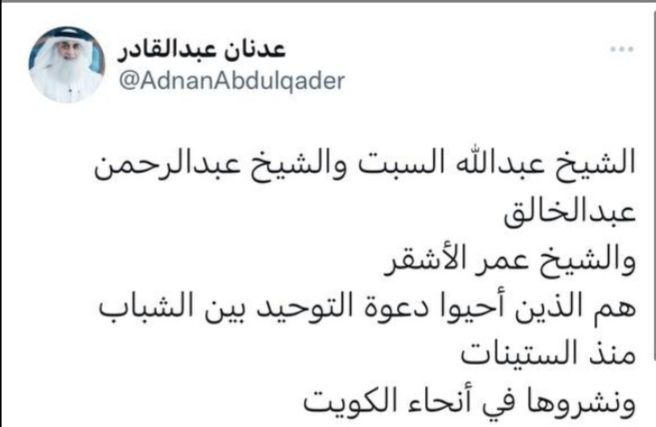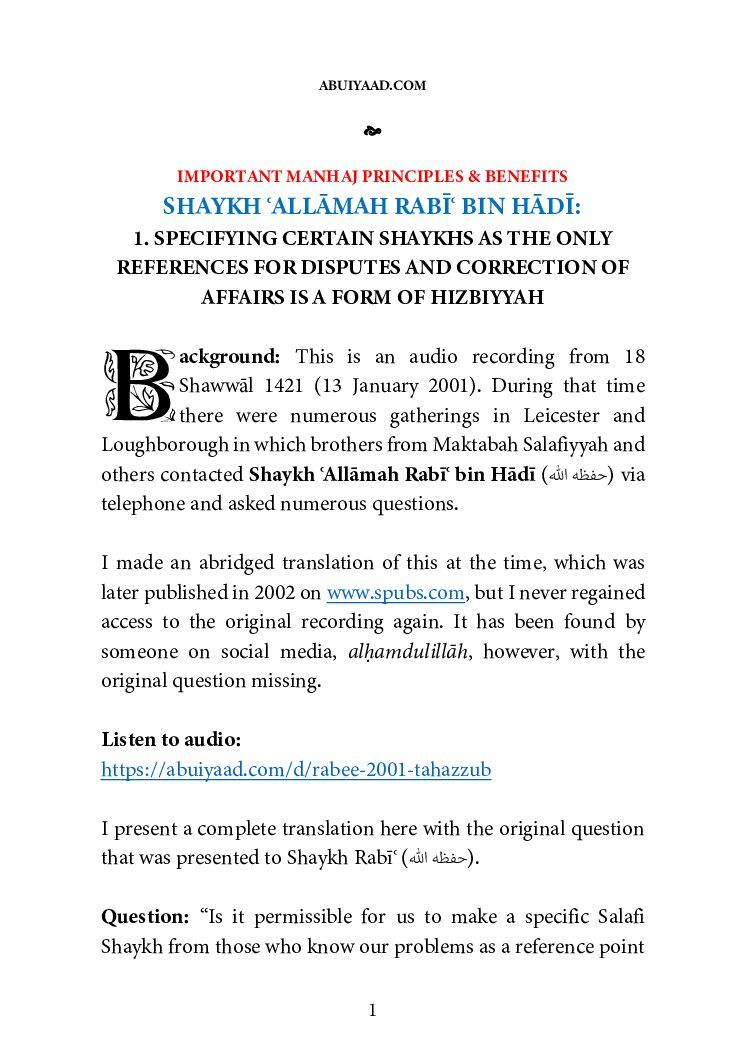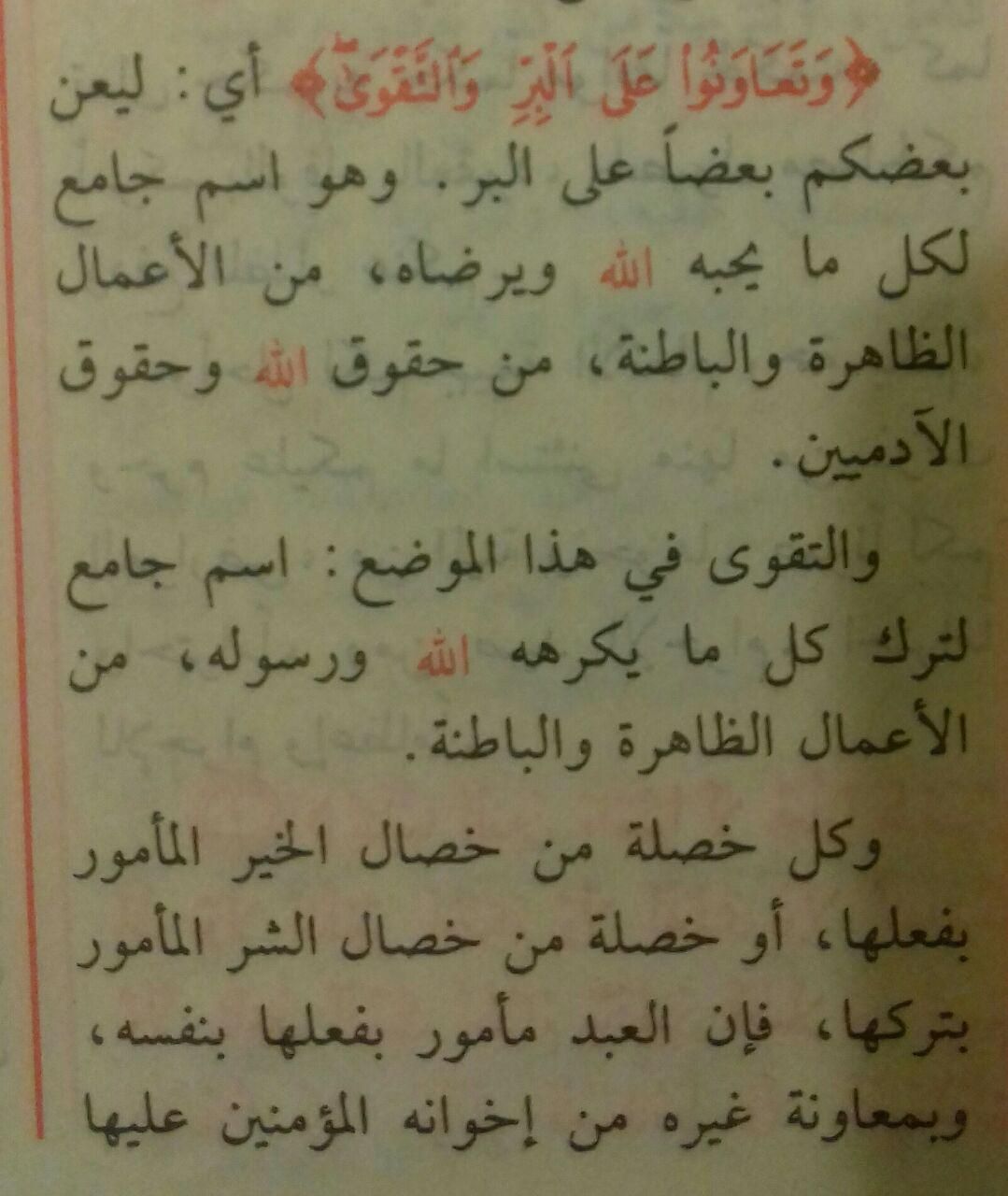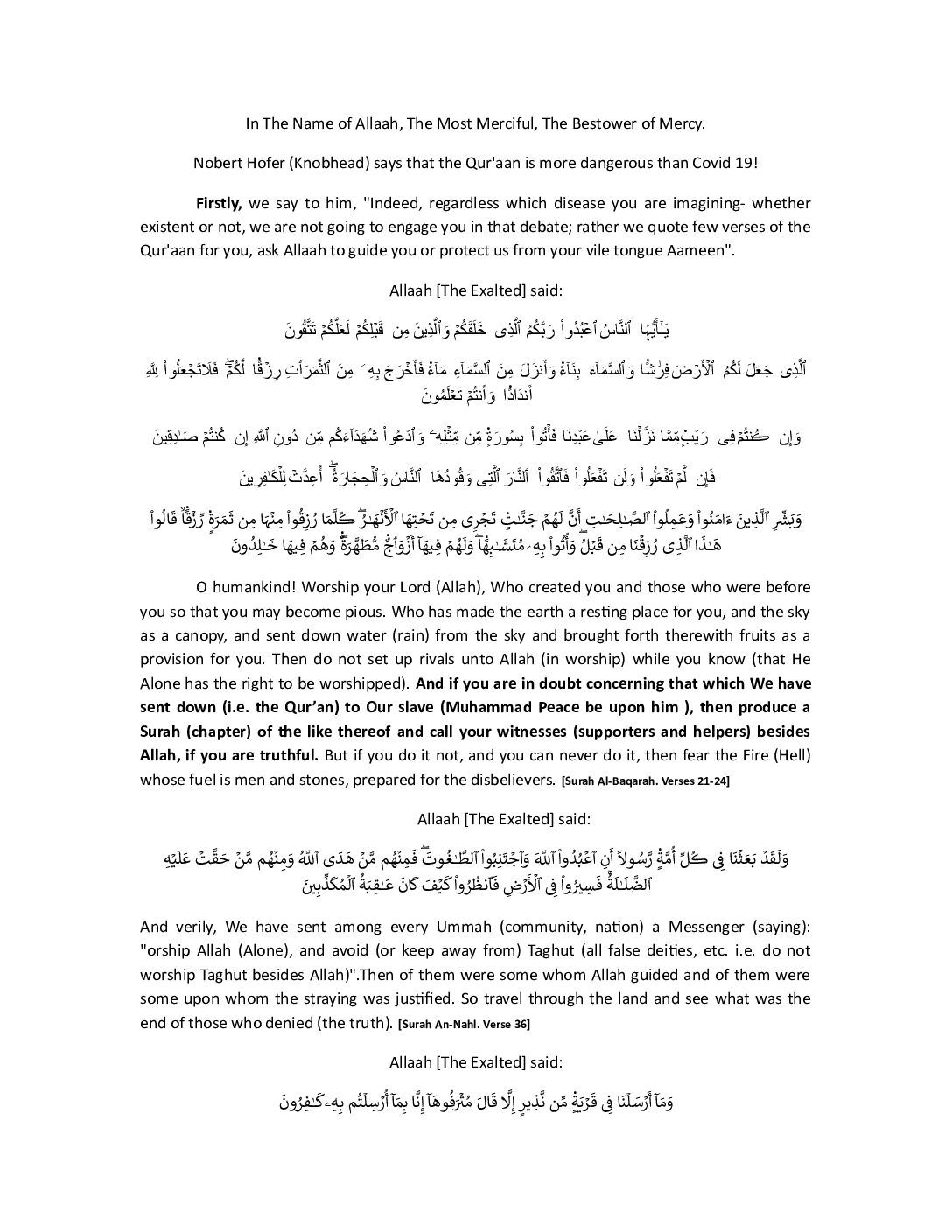بسم الله الرحمن الرحيم
Shaykh Uthaymeen states:
He follows the Imam in the witr and makes it even by adding a rakah, so that he can perform his witr in the last part of the night. Therefore when he follows the Imam and the Imam gives the salaams for the Witr, he stands and performs another rakah and then gives salaams, so he has prayed 2 rakahs, meaning he has not prayed witr. Then when he prays in the last part of the night, he performs his witr after his night prayer. By doing so he has gained the reward of following the imam until he departed, and he has also gained reward for praying witr in the last part of the night, and this is a good action.
So if it is said:
How have you made it permissible for the person praying behind the Imam to oppose him by increasing upon that which his Imam prayed, whilst the Messenger of Allah –sallallaahu alaihi wa sallam- said:
‘’ The imam is appointed to be followed’’ (1)
Our evidence for this is when the messenger of Allah –sallallaahu alaihi wa sallam- prayed with the people of Makkah, in the conquest of Makkah, he prayed two rakah with them and said:
“Oh people of Makkah complete (your prayer) for indeed we are a travelling people.” (2)
So they intended to pray four rakah, whilst the Messenger –sallallaahu alaihi wa sallam- intended two, so when he gave salaams after two, they stood up and completed four. And this is (like) the one who enters the prayer with the Imam in witr but he doesn’t intend witr, he only intends to pray two, so when the imam gives salaams, the person stands and performs a second rakah, and this is a clear deduction and there is no problem with it.
And if it is said “is this not opposing his statement –sallallaahu alaihi wa sallam-
“Whoever stands (and prays) with the Imam untilhe finishes, it will be recorded as if he spent the night in prayer.” (3)
We say no it does not oppose it, because the Prophet- sallallaahu alaihi wa sallam- did not say whoever stands with the Imam then finishes WITH HIM, it will be recorded as if he spent the whole night in prayer. So what is required to attain the reward is praying with the Imam until the Imam finishes, and whoever increases after the Imam has finished, then he has most certainly prayed with him until he finished.
Paraphrased from Ash Sharh Al Mumti’ ala zaad al mustaqni’ Pages 65-66
1 ) Bukhaari and Muslim
2) Ibn Abee Shaybah, Imam Ahmad, Abu Dawood
3) Imam Ahmad, Abu Dawood, At-Tirmidhi and An-Nisaa’i









